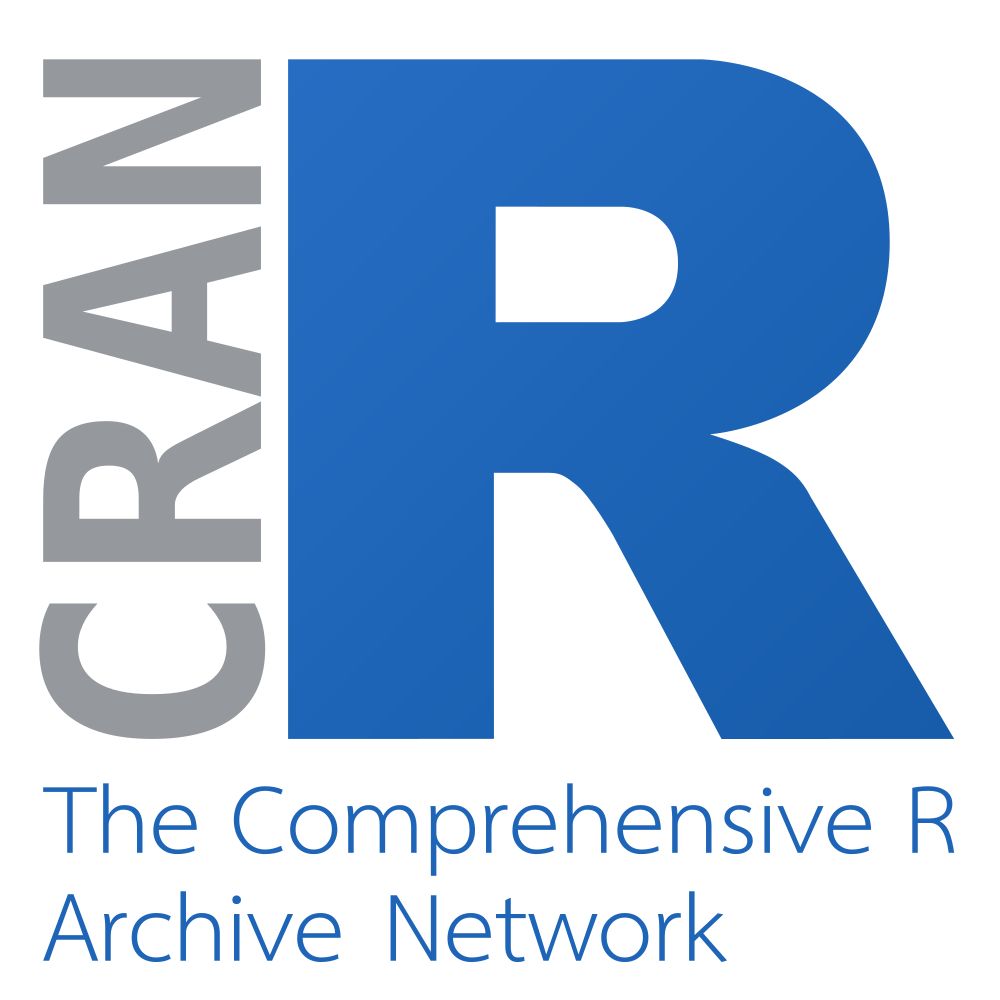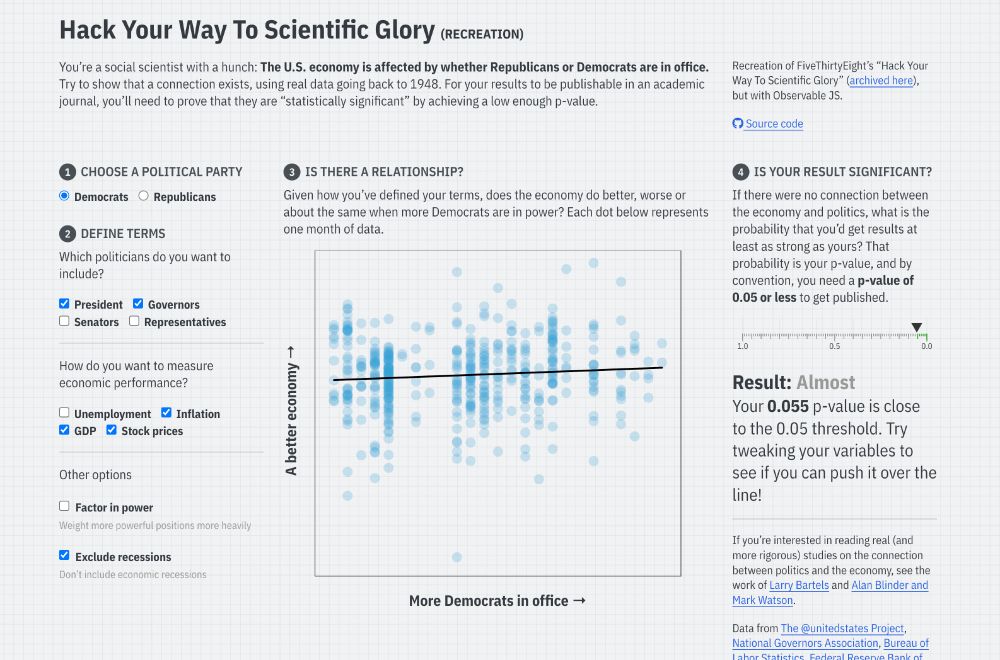Melody Huang
@melodyyhuang.bsky.social
Currently @ Yale, working on causal inference & cutting down on caffeine.
Website: melodyyhuang.com
Website: melodyyhuang.com
Reposted by Melody Huang
Excellent report on experiences of @guidoimbens.bsky.social & Mary Wootters co-teaching "Causality, Decision Making, and Data Science" to undergrads at Stanford fall 2024: hdsr.mitpress.mit.edu/pub/uynpjlow... Course material here: stanford-causal-inference-class.github.io
November 3, 2025 at 4:14 PM
Excellent report on experiences of @guidoimbens.bsky.social & Mary Wootters co-teaching "Causality, Decision Making, and Data Science" to undergrads at Stanford fall 2024: hdsr.mitpress.mit.edu/pub/uynpjlow... Course material here: stanford-causal-inference-class.github.io
Excited to see our paper on evaluating whether AI can help humans make better decisions is now out in @pnas.org!
www.pnas.org/doi/10.1073/...
www.pnas.org/doi/10.1073/...

Does AI help humans make better decisions? A statistical evaluation framework for experimental and observational studies | PNAS
The use of AI, or more generally data-driven algorithms, has become ubiquitous in
today’s society. Yet, in many cases and especially when stakes ar...
www.pnas.org
September 25, 2025 at 2:41 AM
Excited to see our paper on evaluating whether AI can help humans make better decisions is now out in @pnas.org!
www.pnas.org/doi/10.1073/...
www.pnas.org/doi/10.1073/...
Reposted by Melody Huang
Going to include this on my slides about partial identification
September 16, 2025 at 7:39 PM
Going to include this on my slides about partial identification
Reposted by Melody Huang
The Yale Population Studies Workshop is live! Check out our fall lineup here: isps.yale.edu/population-s... Speakers span sociology, economics, medicine, and political science. Both Yale and non-Yale folks are welcome to sign up for the email listserv!
Population Studies Workshop
| Institution for Social and Policy Studies
isps.yale.edu
August 26, 2025 at 3:46 PM
The Yale Population Studies Workshop is live! Check out our fall lineup here: isps.yale.edu/population-s... Speakers span sociology, economics, medicine, and political science. Both Yale and non-Yale folks are welcome to sign up for the email listserv!
Reposted by Melody Huang
New on CRAN: senseweight (0.0.1). View at https://CRAN.R-project.org/package=senseweight

senseweight: Sensitivity Analysis for Weighted Estimators
Provides tools to conduct interpretable sensitivity analyses for weighted estimators, introduced in Huang (2024) <<a href="https://doi.org/10.1093%2Fjrsssa%2Fqnae012" target="_top">doi:10.1093/jrsssa/qnae012</a>> and Hartman and Huang (2024) <<a href="https://doi.org/10.1017%2Fpan.2023.12" target="_top">doi:10.1017/pan.2023.12</a>>. The package allows researchers to generate the set of recommended sensitivity summaries to evaluate the sensitivity in their underlying weighting estimators to omitted moderators or confounders. The tools can be flexibly applied in causal inference settings (i.e., in external and internal validity contexts) or survey contexts.
CRAN.R-project.org
August 22, 2025 at 9:02 PM
New on CRAN: senseweight (0.0.1). View at https://CRAN.R-project.org/package=senseweight
Reposted by Melody Huang
Could that be @melodyyhuang.bsky.social's new #rstats package for sensitivity analyses? 👀
New on CRAN: senseweight (0.0.1). View at https://CRAN.R-project.org/package=senseweight

senseweight: Sensitivity Analysis for Weighted Estimators
Provides tools to conduct interpretable sensitivity analyses for weighted estimators, introduced in Huang (2024) <<a href="https://doi.org/10.1093%2Fjrsssa%2Fqnae012" target="_top">doi:10.1093/jrsssa/qnae012</a>> and Hartman and Huang (2024) <<a href="https://doi.org/10.1017%2Fpan.2023.12" target="_top">doi:10.1017/pan.2023.12</a>>. The package allows researchers to generate the set of recommended sensitivity summaries to evaluate the sensitivity in their underlying weighting estimators to omitted moderators or confounders. The tools can be flexibly applied in causal inference settings (i.e., in external and internal validity contexts) or survey contexts.
CRAN.R-project.org
August 22, 2025 at 9:41 PM
Could that be @melodyyhuang.bsky.social's new #rstats package for sensitivity analyses? 👀
Reposted by Melody Huang
Lots of different ways to do observational causal inference—IV, proximal inference, etc. What if you could compare those strategies more directly?
New preprint w/ @melodyyhuang.bsky.social tries to do just that. Here's one cool figure—we're able to visualize bias of 3 estimators on the same plot
New preprint w/ @melodyyhuang.bsky.social tries to do just that. Here's one cool figure—we're able to visualize bias of 3 estimators on the same plot

August 1, 2025 at 4:59 PM
Lots of different ways to do observational causal inference—IV, proximal inference, etc. What if you could compare those strategies more directly?
New preprint w/ @melodyyhuang.bsky.social tries to do just that. Here's one cool figure—we're able to visualize bias of 3 estimators on the same plot
New preprint w/ @melodyyhuang.bsky.social tries to do just that. Here's one cool figure—we're able to visualize bias of 3 estimators on the same plot
New working paper with @corymccartan.com on comparing the relative bias of different identification approaches! We compare the bias of selection-on-observables, instrumental variables, and proximal inference estimates under violations of their identifying assumptions.
arxiv.org/abs/2507.23743
arxiv.org/abs/2507.23743

Relative Bias Under Imperfect Identification in Observational Causal Inference
To conduct causal inference in observational settings, researchers must rely on certain identifying assumptions. In practice, these assumptions are unlikely to hold exactly. This paper considers the bias of selection-on-observables, instrumental variables, and proximal inference estimates under violations of their identifying assumptions. We develop bias expressions for IV and proximal inference that show how violations of their respective assumptions are amplified by any unmeasured confounding in the outcome variable. We propose a set of sensitivity tools that quantify the sensitivity of different identification strategies, and an augmented bias contour plot visualizes the relationship between these strategies. We argue that the act of choosing an identification strategy implicitly expresses a belief about the degree of violations that must be present in alternative identification strategies. Even when researchers intend to conduct an IV or proximal analysis, a sensitivity analysis comparing different identification strategies can help to better understand the implications of each set of assumptions. Throughout, we compare the different approaches on a re-analysis of the impact of state surveillance on the incidence of protest in Communist Poland.
arxiv.org
August 1, 2025 at 2:17 PM
New working paper with @corymccartan.com on comparing the relative bias of different identification approaches! We compare the bias of selection-on-observables, instrumental variables, and proximal inference estimates under violations of their identifying assumptions.
arxiv.org/abs/2507.23743
arxiv.org/abs/2507.23743
Reposted by Melody Huang
![4-panel comic. (1) [Person 1 with ponytail flanked by person with short hair and another person speaking into microphone at podium] PERSON 1: In the early 2010s, researchers found that many major scientific results couldn’t be reproduced. (2) PERSON 1: Over a decade into the replication crisis, we wanted to see if today’s studies have become more robust. (3) PERSON 1: Unfortunately, our replication analysis has found exactly the same problems that those 2010s researchers did. (4) [newspaper with image of speakers from previous panels] Headline: Replication Crisis Solved](https://cdn.bsky.app/img/feed_thumbnail/plain/did:plc:cz73r7iyiqn26upot4jtjdhk/bafkreibwuu57ullc7vacjyno6c5z3gtyakkg2qub6cn3dbbjdpn2kaowmi@jpeg)
July 21, 2025 at 11:54 PM
Reposted by Melody Huang
I have a new R package, 'bases,' out on CRAN today!
'bases' provides a number of basis expansions that you can use inside any modeling formula. This means you can fit nonparametric regressions with lm() or glmnet() easily!
Bases includes random Fourier features, approximate BART, and more!
'bases' provides a number of basis expansions that you can use inside any modeling formula. This means you can fit nonparametric regressions with lm() or glmnet() easily!
Bases includes random Fourier features, approximate BART, and more!

May 29, 2025 at 9:28 PM
I have a new R package, 'bases,' out on CRAN today!
'bases' provides a number of basis expansions that you can use inside any modeling formula. This means you can fit nonparametric regressions with lm() or glmnet() easily!
Bases includes random Fourier features, approximate BART, and more!
'bases' provides a number of basis expansions that you can use inside any modeling formula. This means you can fit nonparametric regressions with lm() or glmnet() easily!
Bases includes random Fourier features, approximate BART, and more!
Reposted by Melody Huang
We are pleased to announce an experiment intended to stimulate academic discussion and exchange, centered on papers published in Econometrica 1/5
March 27, 2025 at 12:36 PM
We are pleased to announce an experiment intended to stimulate academic discussion and exchange, centered on papers published in Econometrica 1/5
Reposted by Melody Huang
I’ve long used FiveThirtyEight’s interactive “Hack Your Way To Scientific Glory” to illustrate the idea of p-hacking when I teach statistics. But ABC/Disney killed the site earlier this month :(
So I made my own with #rstats and Observable and #QuartoPub ! stats.andrewheiss.com/hack-your-way/
So I made my own with #rstats and Observable and #QuartoPub ! stats.andrewheiss.com/hack-your-way/

March 20, 2025 at 6:30 PM
I’ve long used FiveThirtyEight’s interactive “Hack Your Way To Scientific Glory” to illustrate the idea of p-hacking when I teach statistics. But ABC/Disney killed the site earlier this month :(
So I made my own with #rstats and Observable and #QuartoPub ! stats.andrewheiss.com/hack-your-way/
So I made my own with #rstats and Observable and #QuartoPub ! stats.andrewheiss.com/hack-your-way/
Reposted by Melody Huang
*Please repost* @sjgreenwood.bsky.social and I just launched a new personalized feed (*please pin*) that we hope will become a "must use" for #academicsky. The feed shows posts about papers filtered by *your* follower network. It's become my default Bluesky experience bsky.app/profile/pape...
March 10, 2025 at 6:14 PM
*Please repost* @sjgreenwood.bsky.social and I just launched a new personalized feed (*please pin*) that we hope will become a "must use" for #academicsky. The feed shows posts about papers filtered by *your* follower network. It's become my default Bluesky experience bsky.app/profile/pape...
Reposted by Melody Huang
Does drinking this much coffee lower the risk of omitted variable bias?
People who consumed 200 to 300 milligrams of caffeine a day were less likely to develop coronary heart disease, Type 2 diabetes or stroke.

Drinking this much coffee a day is linked to a lower risk of several diseases
People who consumed 200 to 300 milligrams of caffeine a day were less likely to develop coronary heart disease, Type 2 diabetes or stroke.
nbcnews.to
March 11, 2025 at 2:57 PM
Does drinking this much coffee lower the risk of omitted variable bias?
I have a new working paper with Yi Zhang & Kosuke Imai on estimating generalizable heterogeneous treatment effects (HTEs)! We account for distribution shifts in *both* individual covariates & treatment effect heterogeneity across different source sites. Details below--
arxiv.org/abs/2412.11136
arxiv.org/abs/2412.11136

Minimax Regret Estimation for Generalizing Heterogeneous Treatment Effects with Multisite Data
To test scientific theories and develop individualized treatment rules, researchers often wish to learn heterogeneous treatment effects that can be consistently found across diverse populations and co...
arxiv.org
December 17, 2024 at 4:11 PM
I have a new working paper with Yi Zhang & Kosuke Imai on estimating generalizable heterogeneous treatment effects (HTEs)! We account for distribution shifts in *both* individual covariates & treatment effect heterogeneity across different source sites. Details below--
arxiv.org/abs/2412.11136
arxiv.org/abs/2412.11136
Mellissa Meisels and I are hiring a Yale CSAP predoc for AY25-26. We're looking for someone with strong technical skills & interests in both methods and American politics. If you have any interested undergrads, please send this their way
tobin.yale.edu/opportunitie...
tobin.yale.edu/opportunitie...
CSAP Predoc: American Politics and Political Methodology
tobin.yale.edu
November 13, 2024 at 2:21 AM
Mellissa Meisels and I are hiring a Yale CSAP predoc for AY25-26. We're looking for someone with strong technical skills & interests in both methods and American politics. If you have any interested undergrads, please send this their way
tobin.yale.edu/opportunitie...
tobin.yale.edu/opportunitie...


![Comic. [Graph with x axis for City Size and y axis for Tastiness of “<City>-Style Pizza”. An arrow points to bottom left corner, labeled Towns with bored restaurant owners who have come up with a fun prank to play on visitors. A shaded area covers the length of the y-axis on the left, then narrows toward the right, with the bottom curving upwards toward the right. Arrows within the region point in all different directions labeled Various controversial regional specialties. An arrow points to the upper right corner of this shaded region with label New York up here somewhere.]](https://cdn.bsky.app/img/feed_thumbnail/plain/did:plc:cz73r7iyiqn26upot4jtjdhk/bafkreia57ty6octmfwajfvgo5hh3jdvouoo47fht6wiz25lh7ugncrnyqq@jpeg)